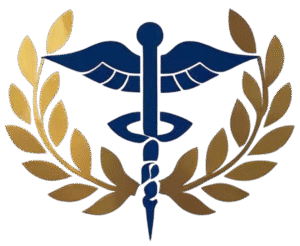Pharma Education in India: The Starting Point for Future Professionals
Pharma, also known as the pharmaceuticals, is the branch of science that deals with the discovery, development, production, testing, and distribution of medicines. The Pharma sector plays a vital role by bringing together medicine and patient care in the healthcare industry. In India, it is one of the leading industries that contributes to the economy, supplying a huge portion of generic drugs, vaccines, and medicines globally. The production of high-quality and affordable medicines and the life-saving drives during the COVID-19 era, solidified the foundation of the Pharmaceutical sector in India and is now known as “Pharmacy of the World”. Since India is a global hub, the opportunities and scope for pursuing a career in pharmacy open up. For students after class 12th, aspiring to take up pharmacy as a career often get stuck with common questions like What is B Pharma? What is D Pharma? Should I choose B Pharma or D Pharma? Which is Better? This article highlights the key differences between the two courses, curricula, and associated career opportunities.
What is B Pharma?
Bachelor of Pharmacy, commonly known as B Pharma is a 4-year undergraduate degree program that deals with Drug development to its impact in the human body. The course focuses on drug development, formulation, testing, regulation, and clinical research. This course is structured for students interested in dispensing medicines along with understanding the mechanism of drugs. B Pharma equips students with technical and scientific skills and opens doors for new opportunities from research labs to industries.
What is D Pharma?
Diploma in Pharmacy, shortly known as D Pharma is a 2-year diploma course that gives an overview of pharmacological practices. It provides knowledge about the fundamentals of pharmacy, dispensing medicines and community or hospital pharmacies. This course is for such students who are job-oriented and want to gain hands-on experience in patient care. D Pharma trains students into professionals. They are eligible to register as pharmacists and begin practising right after they complete their course.
Eligibility and Admission process
Students who have completed 10+2 with Physics, Chemistry, and Biology/ Mathematics as their core subjects are eligible for B Pharma and D Pharma.
For B Pharma, admission is either based on merit through entrance exams conducted by state boards or universities like MHT CET, KCET, WBJEE. Usually, the colleges look for candidates with 50% marks in Class 12 or equivalent.
For D Pharma, the admission is often merit-based with a minimum of 45-50% marks.
During the time of admission, the student must be at least 17 years old. There is no upper age limit.
Course Structure, Duration, and Curriculum
B Pharma
- Duration: 4-year program divided into 8 semesters
- Structure: Each semester includes theoretical subjects, laboratory sessions which includes practical training. Additionally, students gain industrial exposure through internships in companies or hospitals.
- Focus: Advanced study of drug design, formulation, and research
- Subjects: Human Anatomy and Physiology, Pharmaceutical Chemistry, Pharmacognosy (study of natural drugs), Pharmacology, Pharmaceutics and Industrial Pharmacy, Biochemistry, Pharmaceutical Analysis, Medicinal Chemistry, Hospital and Clinical Pharmacy, Pharmaceutical Jurisprudence, Biopharmaceutics and Pharmacokinetics
D Pharma
- Duration: 2-year program.
- Structure: A yearly program not divided into semesters, unlike B Pharma. Includes both theoretical and practical training in hospitals and community pharmacies.
- Focus: Practical training and patient interaction
- Subjects: Covers similar subjects, but in less depth, giving key importance to practical exposure. Subjects include Pharmaceutics, Pharmaceutical Chemistry, Pharmacognosy, Human Anatomy and Physiology, Health Education and Community Pharmacy, Hospital and Clinical Pharmacy, Drug Store and Business Management, Pharmaceutical Jurisprudence.
Key Differences between B Pharma and D Pharma
|
Aspect |
B Pharma | D Pharma |
| Duration |
4 years |
2 years |
| Level |
Undergraduate |
Diploma |
| Depth of Study |
Research and Industrial aspects, Depth |
Practice and application-oriented, Foundational |
| Career Scope |
Broader, includes R&D, QC/QA, Production |
Limited to Medicine Dispensing and Pharmacist Roles |
| Further Studies |
Higher Studies options like M Pharma, Pharm D, MBA or PhD |
Can pursue B Pharma as a lateral entry candidate (into 2nd Year) |
| Average Salary (For Freshers) |
₹ 2.5 – 5 LPA |
₹ 2 – 4 LPA |
| Work Roles | Pharmacist, Research Associate, QC/ QA Officer, Regulatory Affairs |
Pharmacist, Pharmacy Assistant, Store Manager |
Career Opportunities After B Pharma and D Pharma
B Pharma graduates have a wider scope in careers compared to those possessing a Diploma. As they step out of college, with the right skill set, they become eligible to work in the Pharmaceutical industries and Healthcare sectors.
Most popular career paths include:
- Hospital and Clinical Pharmacy – Monitoring prescriptions, patient care and drug therapy management
- Roles in Industries – Contribute to drug formulation, production and quality control/ assurance.
- Research and Development – As Research Associates or Analytical Chemists there are opportunities in areas like drug discovery, formulation and testing.
- Clinical Research and Pharmacovigilance: Monitor Clinical trials and track the safety and effectiveness of the drugs.
- Regulatory Affairs – Regulation of drug quality and safety standards as per the government norms, acts as a bridge between the lab and market.
- Sales and Marketing – Roles like Medical representatives or Product managers, mostly focus on the promotion of the pharma products.
- Government and Public Sector Jobs: Can work in Central and State Drug Control departments.
- Higher Studies or Academia
- Entrepreneurship
After the completion of D Pharma, students can register themselves as Pharmacists and can start working immediately. Most of the entry level roles often test the skills and practical experience. Unlike B Pharma, Diploma holders have a limited career scope, but it is most suitable for those looking for jobs.
- Hospital and Community Pharmacist – Roles like pharmacists, medicine dispensing and educating patients about the usage of drugs.
- Sales Representative – Marketing and Promotion of Medicines and other pharma products to hospitals and medical professionals.
- Pharmaceutical Manufacturing Assistant – Entry level role in production, packaging or quality control units in pharma companies.
- Further Studies – Can join directly to 2nd year of B Pharma through lateral entry for better career opportunities.
- Government sector jobs – Eligible to give exams like Drug Inspector or Pharmacy officer after further studies.
- Entrepreneurship
Salary Comparison
Salaries vary based on the job position, experience, location, and type of company.
|
Qualification |
Freshers/ Entry level | Mid Level | Senior Level |
|
B Pharma |
₹ 2.5 – 5 LPA |
₹ 5.5 – 10 LPA |
₹ 10 – 20 LPA |
| D Pharma | ₹ 2 – 4 LPA | ₹ 4.5 – 6 LPA |
₹ 6 – 8.5 LPA |
(The Salaries tend to change and these are not fixed)
Which Course to Choose?
After analysing the Pros and Cons of both jobs, the first question that strikes in the student’s mind is Which course is better? What should I choose? The answer lies within and depends on what you aspire to become.
If you are interested in R&D and aiming for a career in drug formulation, production and regulatory sectors, B Pharma is the best choice. This opens up options to scientific and managerial roles in the pharmaceutical industry. B Pharma always has room open for further studies and career growth. Note that this program requires commitment and effort for a successful career.
Go for D Pharma, if you are more career oriented, want to enter the workforce quickly. This course not only trains you practically but also involves patient care and interaction. If your goal is to become an entrepreneur and set up a pharmacy of your own, D Pharma will help you the best. Talking about economic factors, this is a short-term and budget-friendly course.
Also, keep in mind that many students after the completion of D Pharma, upskill themselves by taking admission to B Pharma through lateral entry. This pathway helps them to gain more knowledge with practical experience, exposing them to more advanced and diverse career opportunities.
Future Scope of Pharmacy in India
The drastic growth of the pharmaceutical sector in India is very impactful. It plays a vital role not only in the local but throughout the world. With the expansion and advancement of the facilities and production units, pharma breaks down the walls and extends its services to multidisciplinary healthcare terms. The emerging areas like AI and ML in drug discovery, Pharmacovigilance, Biotechnology, and Clinical Data Management are creating new job roles for budding pharma professionals.
Post COVID-19, the demand and recognition for the Indian pharma sector have increased dramatically. The “Make in India” initiative has paved the way for novel ideas and transformed the research and education sectors. As a result, the employment opportunities have surged in both private and public sectors.
Conclusion
Both B Pharma and D Pharma courses serve as the gateways to a rewarding career in pharmacy. D Pharma is ideal for those who want to get into the workforce quickly and are focused . B Pharma D Pharma is ideal for those who want to begin working quickly and gain hands-on experience in patient care and medicine dispensing. B Pharma, on the other hand, offers a deeper academic and professional foundation, leading to research, industrial, and managerial roles.
Ultimately, your decision should align with your long-term goals—whether that’s working in a hospital, running your own pharmacy, joining a pharmaceutical company, or contributing to drug research and innovation. Pharmacy, as a profession, continues to evolve, and whichever path you choose, it promises a meaningful and impactful career in healthcare.




